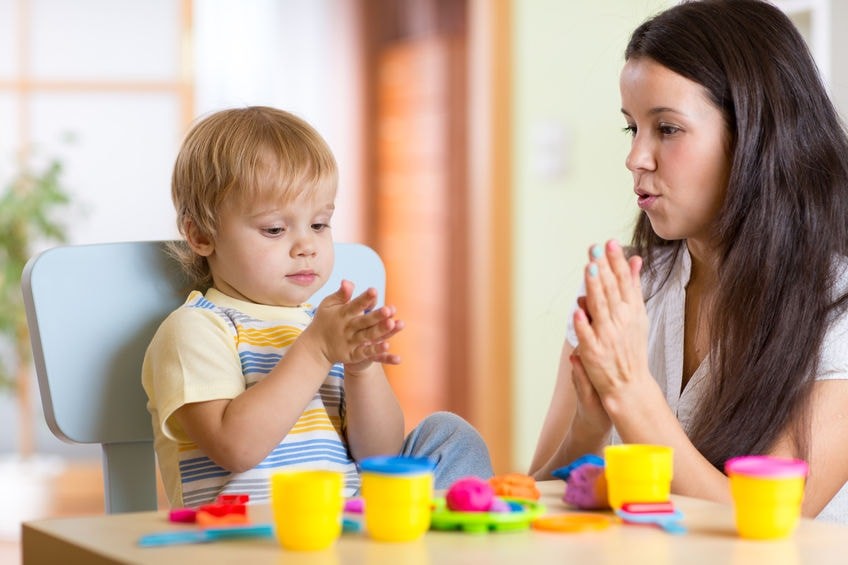SPEECH & LANGUAGE MILESTONES
For every child, reaching certain speech and language milestones is important for their social, cognitive and academic development. Here are the most common milestones for children, from birth to 5 years old.
CHILDREN 0-1 YEAR
Hearing and Understanding
- Enjoys games like peek-a-boo and pat-a-cake
- Turns and looks in direction of sounds
- Listens when spoken to
- Recognizes words for common items like “cup”, “shoe”, “book”, or “juice”
- Begins to respond to requests (e.g. “Come here” or “Want more?”)
Talking
- Babbling has both long and short groups of sounds such as “tata upup bibibibi”
- Uses speech or noncrying sounds to get and keep attention
- Uses gestures to communicate (waving, holding arms to be picked up)
- Imitates different speech sounds
- Has one or two words (hi, dog, dada, mama) around first birthday, although sounds may not be clear
CHILDREN 1-2 YEARS
Hearing and Understanding
- Understands differences in meaning (“go-stop,” “in-on,” “big-little,” “up-down”).
- Follows two requests (“Get the book and put it on the table”).
- Listens to and enjoys hearing stories for longer periods of time
Talking
- Has a word for almost everything.
- Uses two- or three- words to talk about and ask for things.
- Uses k, g, f, t, d, and n sounds.
- Speech is understood by familiar listeners most of the time.
- Often asks for or directs attention to objects by naming them.
- Asks why questions
CHILDREN 2-3 YEARS
Hearing and Understanding
- Understands differences in meaning ("go-stop," "in-on," "big-little," "up-down").
- Follows two requests ("Get the book and put it on the table").
- Listens to and enjoys hearing stories for longer periods of time.
Talking
- Uses two- or three- words to talk about and ask for things.
- Uses k, g, f, t, d, and n sounds.
- Speech is understood by familiar listeners most of the time.
- Often asks for or directs attention to objects by naming them.
- Asks why?
- May stutter on words or sounds.
CHILDREN 3-4 YEARS
Hearing and Understanding
- Understands colors
- Understands shapes
- Understands words for family: brother, sister, aunt
Talking
- Talks about school activities or friends at home
- Uses 4 sentences at a time
- People outside the family understand them
- Answers simple “who?”, “what?”, and “where?” questions. “Who is in the car?
- Asks when and how questions
- Says rhyming words like hat-cat
- Uses pronouns like I, you, we and they
- Uses plurals like toys, birds and buses
- Uses sentences that have 4 or more words
- Usually talks easily without repeating syllables or words.
CHILDREN 4-5 YEARS
Hearing and Understanding
- Understands words for order, like first, next, and last.
- Understands words for time, like yesterday, today, and tomorrow.
- Follows longer directions, like “Put your pajamas on, brush your teeth, and then pick out a book.”
- Follows classroom directions, like “Draw a circle on your paper around something you eat.”
- Hears and understands most of what is said at home and in school.
Talking
- Says all speech sounds in words. May make mistakes on sounds that are harder to say, like l, s, r, v, z, ch, sh, th.
- Responds to “What did you say?”
- Talks without repeating sounds or words most of the time.
- Names letters and numbers.
- Uses sentences that have more than 1 action word, like jump, play, and get. May make some mistakes, like “Zach got 2 video games, but I got one.”
- Tells a short story.
- Keeps a conversation going.
- Talks in different ways depending on the listener and place. May use short sentences with younger children or talk louder outside than inside.
CONTACT US
We'd love to hear from you to schedule a free consultation or answer any questions.
CONTACT US

